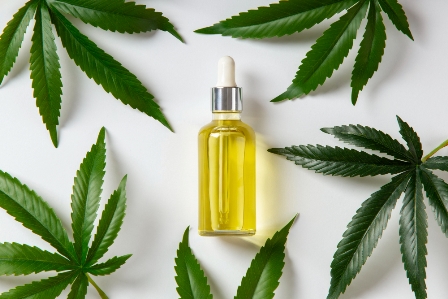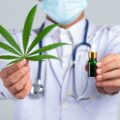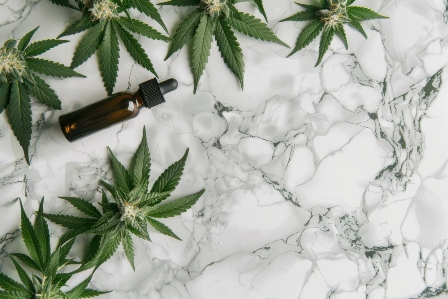Cannabidiol (CBD) oil has emerged as one of the most popular natural wellness products in recent years. With growing scientific research supporting its potential health benefits, CBD oil is being used by millions worldwide for various conditions. This comprehensive guide will explore everything you need to know about CBD oil, from its benefits and uses to dosage recommendations and how to choose quality products.
Key Takeaway: CBD oil is a natural compound derived from the hemp plant that interacts with the body’s endocannabinoid system. Unlike THC, CBD is non-psychoactive and may offer numerous health benefits without causing a “high.”
What is CBD Oil?
CBD, or cannabidiol, is one of over 100 cannabinoids found in the cannabis plant. CBD oil is created by extracting CBD from the cannabis plant and then diluting it with a carrier oil like coconut or hemp seed oil.
Unlike tetrahydrocannabinol (THC), the main psychoactive compound in marijuana, CBD is non-intoxicating. This means it doesn’t produce the “high” associated with marijuana use. The CBD used in most products comes from hemp, a variety of cannabis that contains less than 0.3% THC.
How CBD Works in the Body
CBD interacts with the body’s endocannabinoid system (ECS), a complex cell-signaling system that plays a role in regulating various functions and processes, including:
- Sleep
- Mood
- Appetite
- Memory
- Pain sensation
- Immune response
The ECS consists of endocannabinoids, receptors, and enzymes. CBD doesn’t directly bind to the main cannabinoid receptors (CB1 and CB2) but influences them indirectly and enhances the effects of the body’s natural endocannabinoids.
Potential Benefits of CBD Oil
Scientific research has identified numerous potential health benefits associated with CBD oil. Here are some of the most well-documented benefits:
Pain Relief
CBD may help reduce chronic pain by impacting endocannabinoid receptor activity, reducing inflammation, and interacting with neurotransmitters.
Anxiety and Depression
Studies suggest CBD may help with both anxiety and depression, possibly by acting on the brain’s serotonin receptors.
Neuroprotective Properties
Researchers believe CBD’s ability to act on the ECS and other brain signaling systems may benefit those with neurological disorders like epilepsy and multiple sclerosis.
Heart Health
Recent research has linked CBD with several benefits for the heart and circulatory system, including the ability to lower high blood pressure.
Sleep Improvement
CBD may help with both falling asleep and staying asleep, potentially benefiting those with insomnia and other sleep disorders.
Skin Health
CBD’s anti-inflammatory properties may help reduce acne and other skin conditions when applied topically.
Note: While promising, more research is needed to fully understand CBD’s effects and establish standardized dosing guidelines for various conditions.
CBD Oil Dosage Guide
Determining the right CBD dosage can be challenging because it depends on multiple factors, including:
- Your body weight
- The condition being treated
- Your individual body chemistry
- The concentration of CBD in each product
It’s always best to start with a low dose and gradually increase until you achieve the desired effects. Most people start with 20-40 mg per day and adjust as needed.
CBD Dosage Calculator
Use this calculator to estimate a starting dosage based on your weight and desired strength.
How to Take CBD Oil
CBD oil can be consumed in several ways:
- Sublingual: Place drops under your tongue for 30-90 seconds before swallowing for fast absorption.
- Ingestion: Add to food or drinks, though this method has slower onset and lower bioavailability.
- Topical: Apply directly to skin for localized relief of pain or inflammation.
- Inhalation: Vaping provides rapid effects but may pose lung health risks.
Types of CBD Oil
Not all CBD oils are created equal. There are three main types to consider:
1. Full-Spectrum CBD
Contains all phytochemicals naturally found in the plant, including CBD, trace cannabinoids, terpenes, and essential oils. Full-spectrum CBD from hemp will contain less than 0.3% THC.
2. Broad-Spectrum CBD
Contains multiple cannabis plant compounds but typically no THC (or only trace amounts). Offers the “entourage effect” without THC.
3. CBD Isolate
The purest form of CBD, containing 99% pure CBD with no other cannabis plant compounds.
The Entourage Effect: This theory suggests that CBD works better when combined with other cannabis plant compounds rather than in isolation. Many experts recommend full-spectrum or broad-spectrum products for this reason.
How to Choose Quality CBD Oil
With the CBD market growing rapidly, it’s important to know how to identify high-quality products. Here’s what to look for:
1. Third-Party Testing
Reputable companies provide certificates of analysis (COAs) from independent labs that verify the product’s CBD content and check for contaminants.
2. Source of Hemp
Look for CBD derived from organically grown hemp in the U.S. or Europe where agricultural standards are strict.
3. Extraction Method
CO2 extraction is the gold standard as it yields clean, high-quality CBD without residual solvents.
4. THC Content
Ensure the product contains less than 0.3% THC if you want to avoid psychoactive effects (unless you’re in a state where recreational marijuana is legal).
5. Ingredients
Check for unnecessary additives, preservatives, or thinning agents. Quality CBD oil should have minimal ingredients.
6. Company Reputation
Research the company’s history, customer reviews, and whether they’ve received any FDA warning letters.
Frequently Asked Questions About CBD Oil
No, CBD is non-psychoactive and won’t produce a “high” like THC. Hemp-derived CBD products must contain less than 0.3% THC, which isn’t enough to cause intoxication when used as directed.
CBD is generally well-tolerated, but some people may experience side effects like dry mouth, diarrhea, reduced appetite, drowsiness, or fatigue. CBD can also interact with certain medications, so consult your doctor before use if you’re taking prescription drugs.
The onset time depends on the method of consumption. Sublingual administration typically takes effect within 15-45 minutes, while edibles may take 1-2 hours. Topical applications work locally within minutes to hours. For chronic conditions, it may take several weeks of consistent use to notice effects.
Yes, many people use CBD oil daily as part of their wellness routine. Consistent daily use may be more effective for chronic conditions than occasional use. There’s no evidence that CBD is addictive or causes dependence.
The Future of CBD Oil
As research into CBD continues to expand, we’re likely to see:
- More FDA-approved CBD medications for specific conditions
- Greater standardization in product quality and labeling
- Clearer dosing guidelines for various health concerns
- New delivery methods and formulations
- More comprehensive understanding of long-term effects
The growing body of scientific evidence supporting CBD’s therapeutic potential suggests it will continue to play an important role in natural health and wellness.
Final Thoughts: CBD oil offers promising benefits for various health concerns, but it’s important to approach it as you would any wellness product—do your research, choose quality products, start with low doses, and consult your healthcare provider if you have any concerns or are taking medications.





